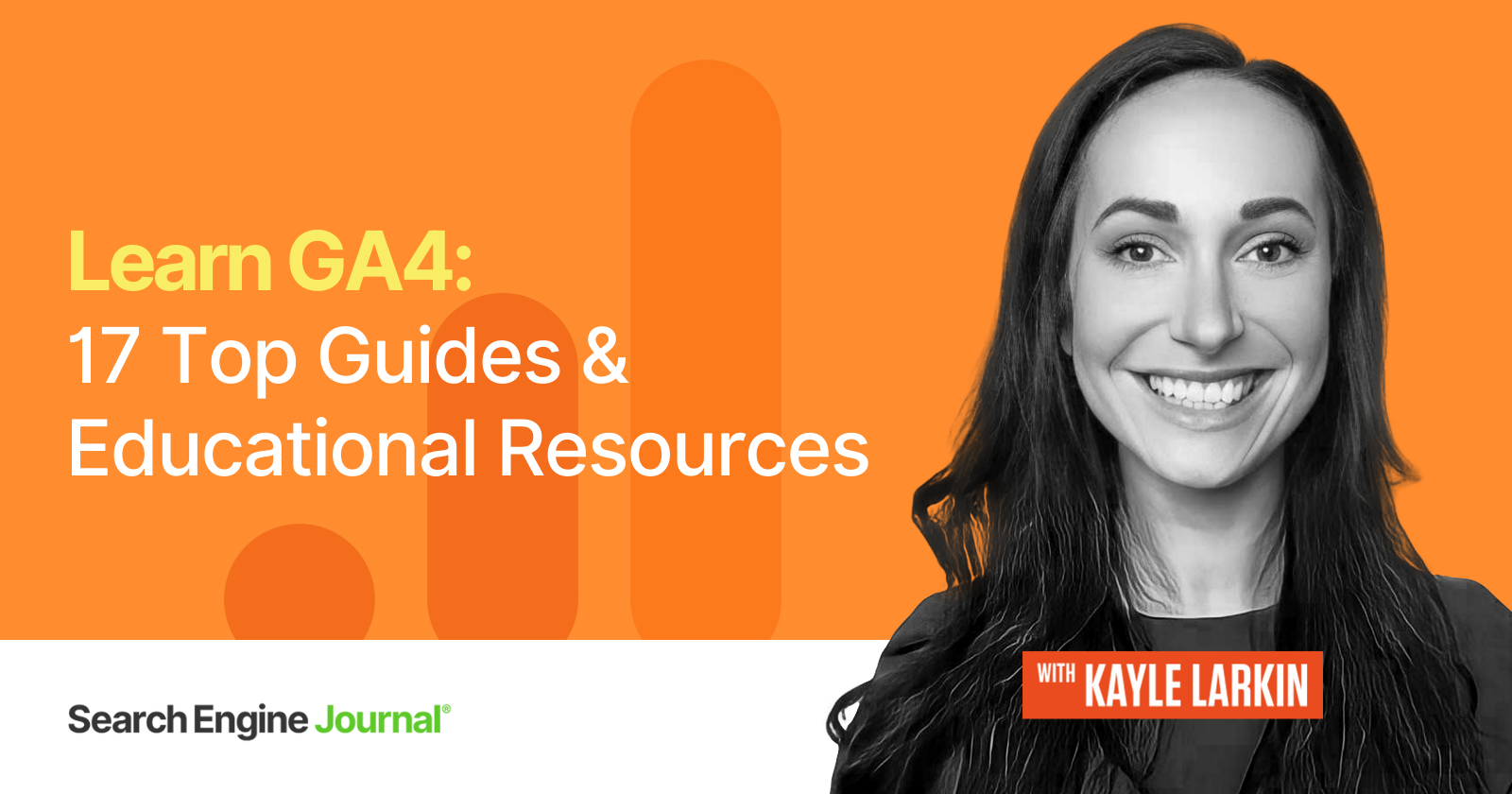How to Target Keywords With Blog Posts
But why should you do that? And how exactly do you target keywords? You’ll learn how in this post. Why target keywords? If your content ranks high on Google, you can get traffic consistently over time. For example, we...
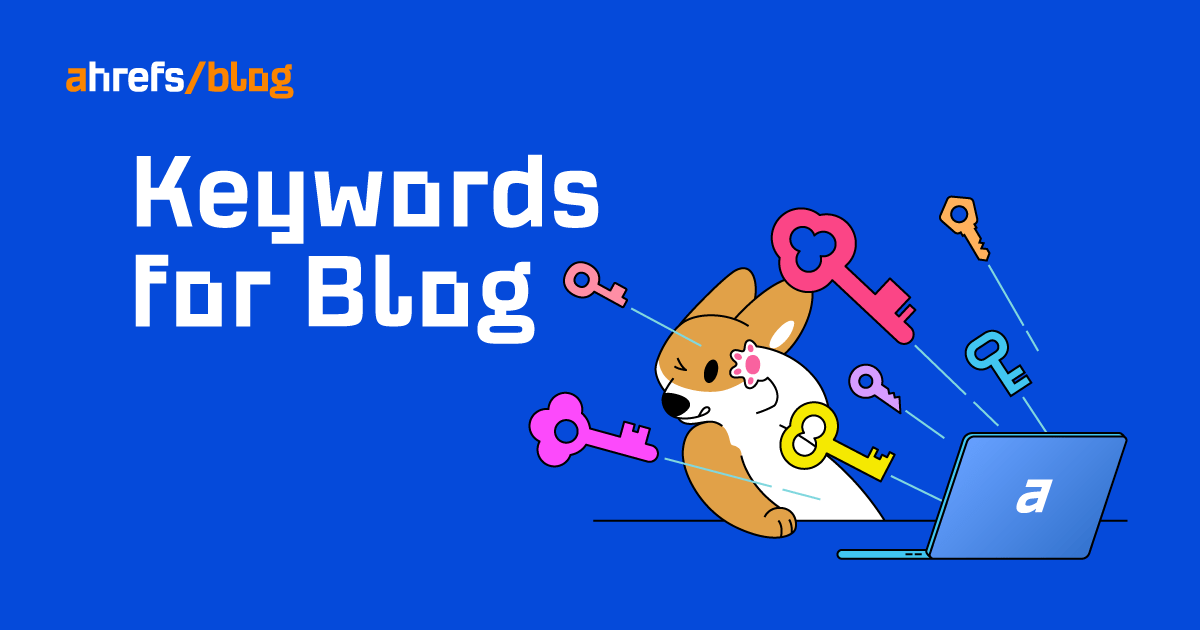
You’ve probably heard a lot about the importance of targeting keywords with your blog posts. But why should you do that? And how exactly do you target keywords? You’ll learn how in this post. If your content ranks high on Google, you can get traffic consistently over time. For example, we published this post on advanced Google search operators in 2018. To this date, we’re still getting tons of organic traffic: But you can’t just publish any random post and expect search traffic to come your way. To get consistent organic traffic, you need to write about topics that people are searching for. This is why you should be targeting keywords with your blog posts. You now know why it’s important to target keywords. But how exactly do you “target” them? Here’s how. The process begins by figuring out what keywords you want to target. We’re not just looking for any random keywords—we’re looking for relevant keywords that people are searching for. The easiest way to do this is to use a keyword tool. Keyword tools are databases of words and phrases with their SEO metrics. They show you a list of ideas based on the seed keyword idea you’ve entered. You can use any keyword research tool. Many of them are free. However, most of the free keyword tools are limited in some way—they may have a small database, have poor or no filters, lack SEO metrics, and more. That can make it difficult to make good decisions. So we recommend that you use a “professional” keyword tool like Ahrefs’ Keywords Explorer. Here’s how to use the tool to find keyword ideas: You’ll see that there are over 300,000 potential keywords you could target. That’s too many—and most of them are probably too competitive. If you’re just starting out, it’s better to target keywords that are: Use the available filters to reduce the list down: From here, you can look through the list and pick out those keywords that are relevant to your site. Recommended reading: Keyword Research: The Beginner’s Guide by Ahrefs Google’s aim is to rank the most relevant content for any query. As such, it tries to understand why a searcher is Googling that keyword so it can serve the most relevant results. That means, in order to rank high on Google, we need to identify and match search intent. Fortunately, we can do this by looking at the current top-ranking pages for your target query. Specifically, we want to identify the three Cs of search intent: For example, let’s take a look at the top-ranking pages for the keyword “how to clean coffee maker”: If you’re targeting this keyword, for example, it’s likely you’ll have to create a how-to guide on cleaning a coffee maker (perhaps with vinegar!). Recommended reading: What Is Search Intent? A Complete Guide for Beginners Targeting keywords with blog posts is no longer about stuffing as many keywords as possible. That’s an ancient tactic that no longer works. If you want to rank high on Google, you need to show Google that your content is relevant and deserves to be on the first page. By matching search intent, you’ve already cleared the first hurdle. But how else can you show Google your content deserves to be there? Here’s how: If there are subtopics that almost all the top-ranking pages cover, then it’s a sign that searchers are looking for them. Here’s how to find these subtopics: We can see that the top-ranking pages cover topics like these: And more. If we’re covering this topic (“earned media”), it is likely we’ll have to cover these subtopics too. Even better: You can use them as potential H2s to organize your content. You should make sure your content is easy to read. After all, the purpose of your blog post is not just to rank but also to get the reader to consume your content. Follow these tips to create an effortless reading experience: Your on-page SEO is the “icing” on the cake that helps make it doubly clear to Google and searchers that your page is relevant. Here are the basics: Interested in learning more about SEO and creating SEO content? Check out these resources: Any questions or comments? Let me know on Twitter. Why target keywords?

How to target keywords with blog posts
1. Find keyword ideas
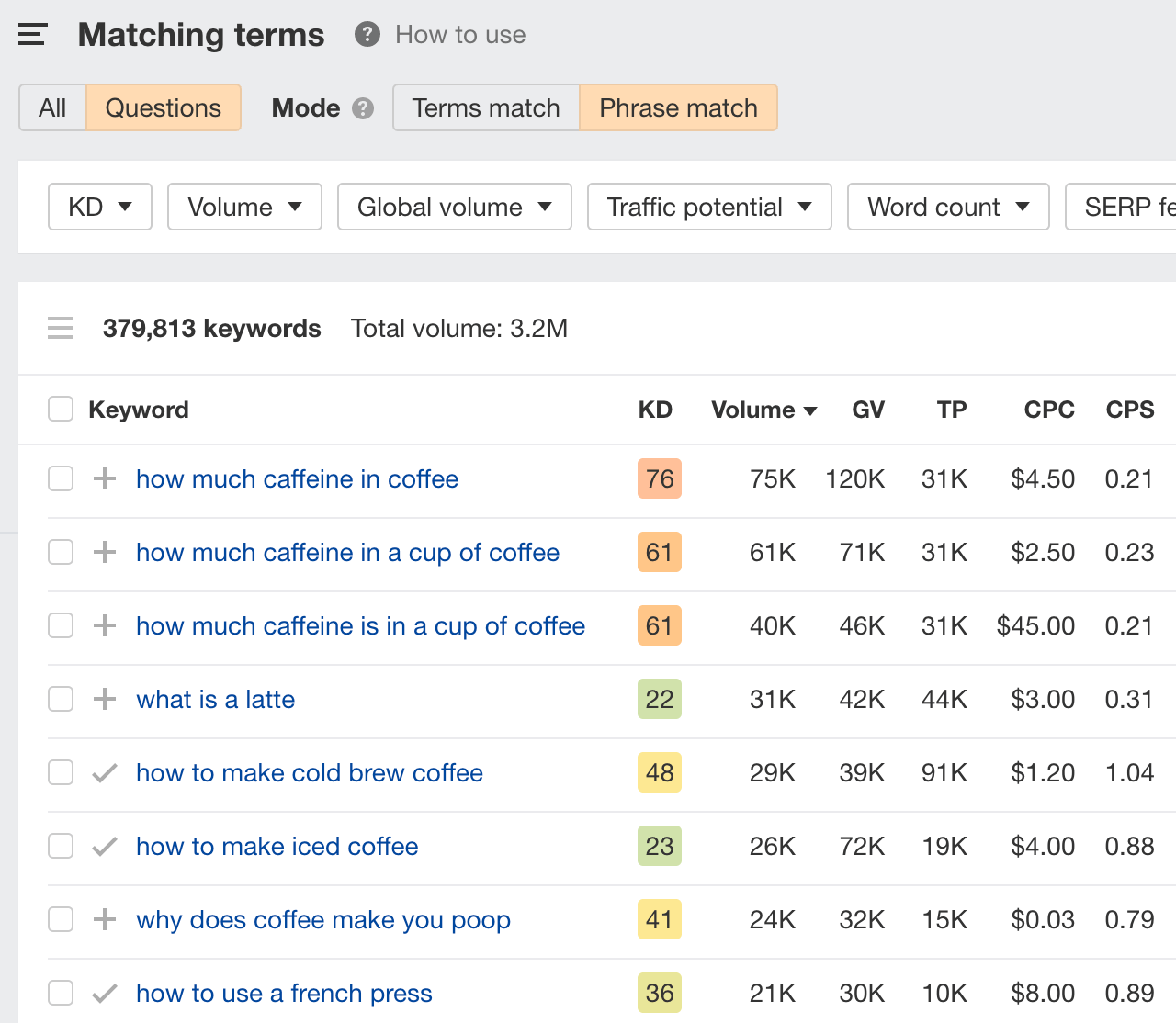

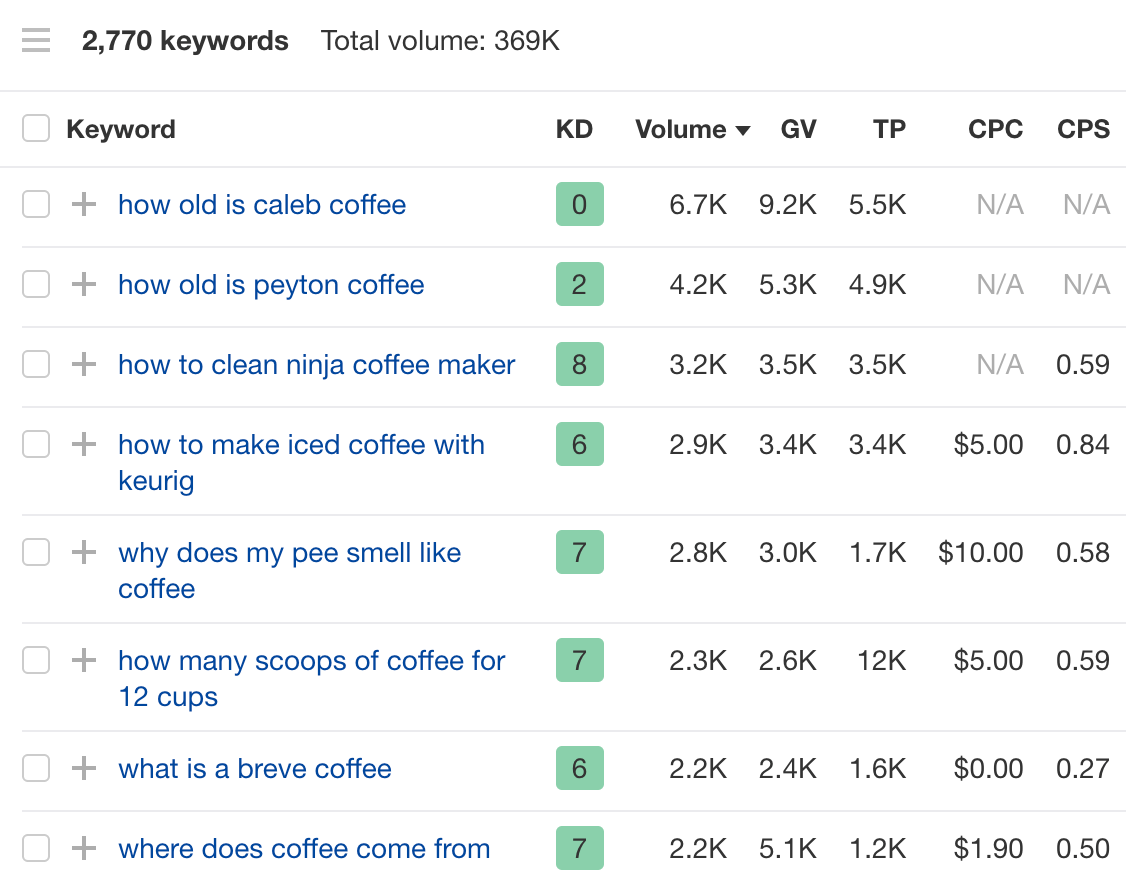
2. Identify search intent
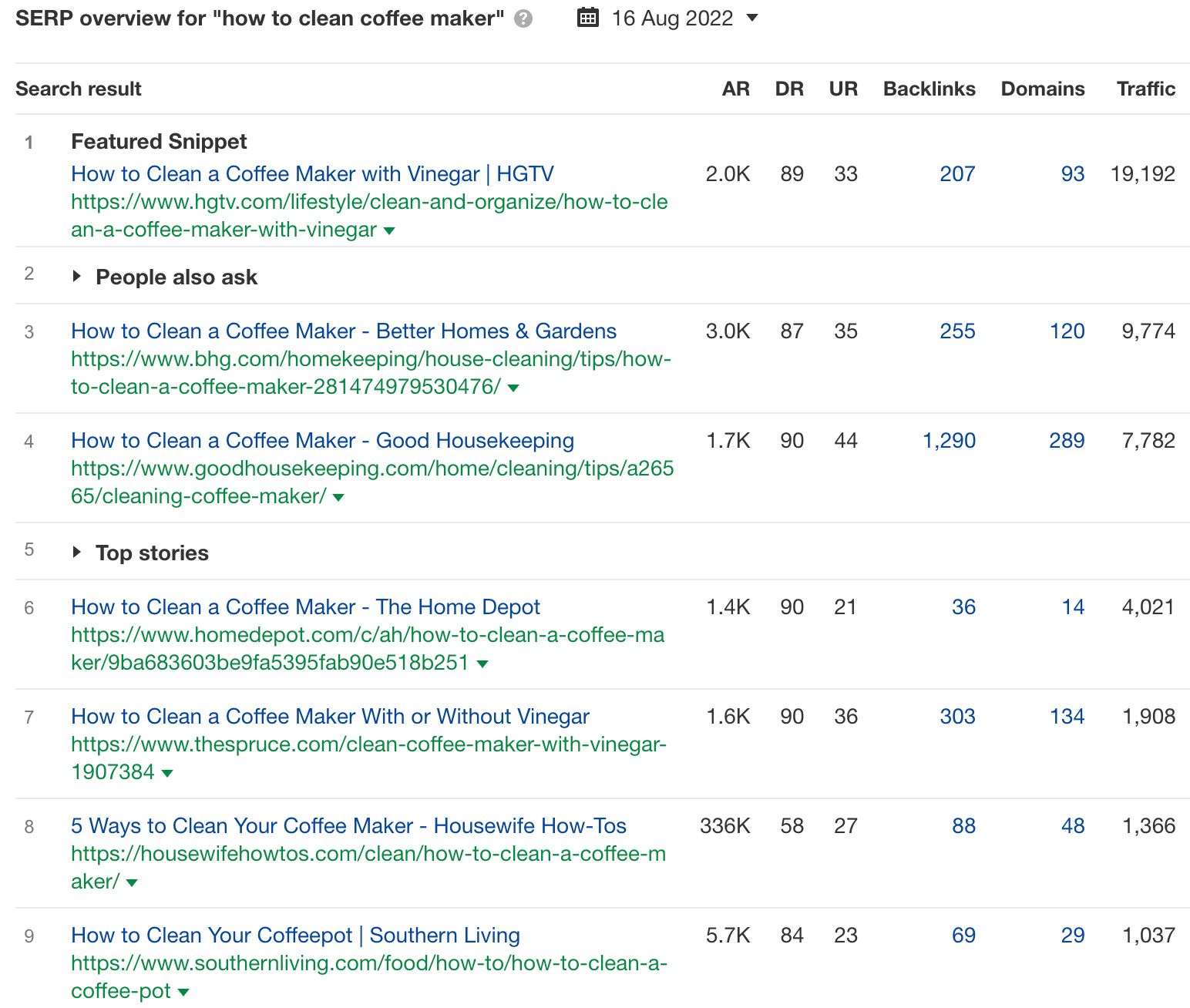 Content type – They’re all blog posts.Content format – Most of them are how-to guides.Content angle – It seems like a few of them mentioned “with vinegar.” It could be a potential angle you might want to go for.
Content type – They’re all blog posts.Content format – Most of them are how-to guides.Content angle – It seems like a few of them mentioned “with vinegar.” It could be a potential angle you might want to go for. 3. Create the content
A. Cover important subtopics
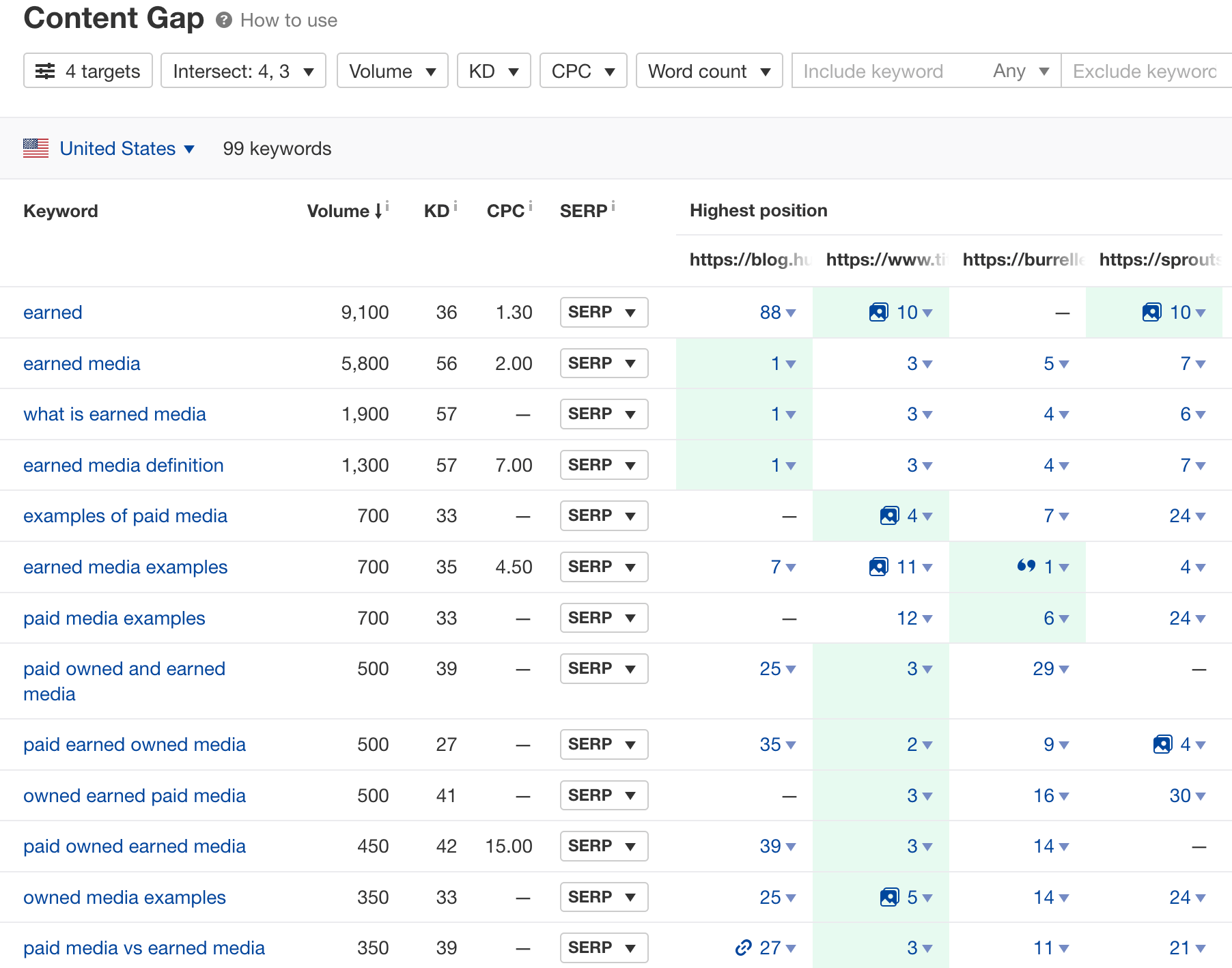
B. Invest in a good reader experience
C. Don’t forget your on-page SEO
Learn more

 Hollif
Hollif 








